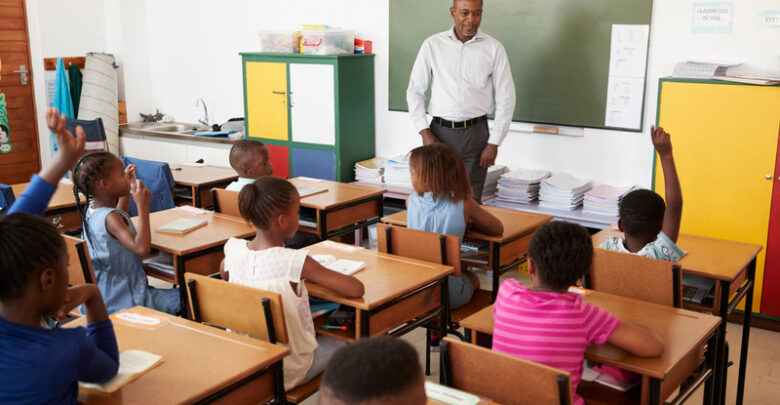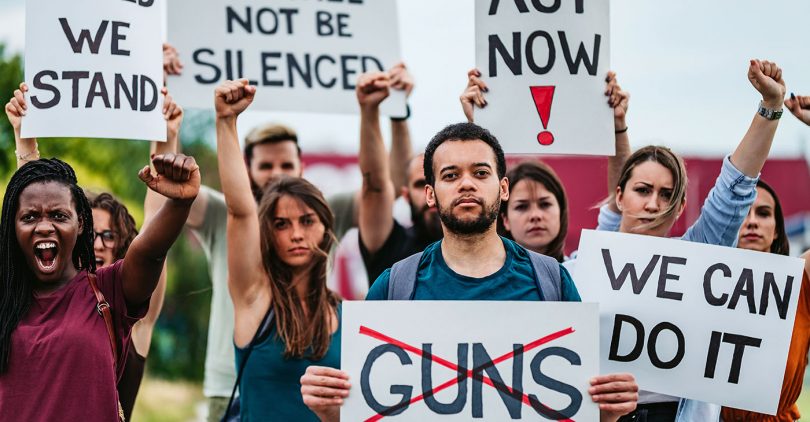
By Stacy M. Brown
WI Senior Writer
@StacyBrownMedia
President Joe Biden and Vice President Kamala Harris announced sweeping new measures to combat gun violence in America today, marking a significant escalation in the administration’s ongoing efforts to reduce firearm-related deaths. Central to this initiative is a new Executive Order that directs federal agencies to address the rising threats posed by machinegun conversion devices and 3D-printed firearms and to improve the effectiveness of school-based active shooter drills.
The White House said the steps build on the administration’s already extensive record in gun violence prevention. Since taking office, the Biden-Harris administration said it has worked to address the alarming spike in violent crime left by the previous administration. The American Rescue Plan allocated over $15 billion to law enforcement and public safety strategies, focusing on community violence interventions. In June 2022, Biden signed the historic Bipartisan Safer Communities Act, which the White House called the most significant gun violence prevention law passed in nearly three decades. A year later, the administration established the White House Office of Gun Violence Prevention, a ground-breaking program under Vice President Harris’ direction.
The administration said this decisive leadership has had tangible results: in 2023, the U.S. witnessed the sharpest decline homicide rates in recent history, a trend that has only accelerated into 2024. From January to June of this year, homicides fell another 17%, while mass shootings declined by 20%, according to the Gun Violence Archive.
As the administration celebrates the first anniversary of the Office of Gun Violence Prevention, Biden and Harris – the Democratic presidential nominee, said they are once again raising the bar with additional actions designed to save lives.
Combating the Latest Firearms Threats
A central focus of the new Executive Order is the fight against emerging firearms technologies. Two specific threats are highlighted: machinegun conversion devices and 3D-printed, unserialized firearms—both of which are increasingly found at crime scenes across the country. Machinegun conversion devices, which can turn a semi-automatic firearm into an illegal automatic weapon, have surged by 570% between 2017 and 2021, according to the Bureau of Alcohol, Tobacco, Firearms, and Explosives (ATF). These devices, often 3D-printed for less than a dollar, can fire up to 20 bullets in a single second, posing an unprecedented threat.
Unserialized firearms, commonly known as “ghost guns,” also present an evolving danger. Produced through 3D printing and undetectable by standard security measures, these firearms are often used for gun trafficking and other illegal activities. Officials noted that law enforcement cannot trace them, making criminal investigations harder and communities less safe.
Biden and Harris announced they are forming an Emerging Firearms Threats Task Force in response. The Task Force will evaluate the federal government’s ability to detect and intercept these weapons and will submit a report within 90 days outlining what additional resources or authorities are necessary to stop this growing threat.
Enhancing School Safety
In the wake of numerous school shootings, the administration announced further steps to protect America’s students. The Executive Order directs the Secretary of Education and other top officials to improve active shooter drills in schools. While many schools have already conducted these drills, concerns about the psychological impact on students, teachers, and parents have emerged. The administration is committed to ensuring these drills are effective without causing trauma.
Over the next 110 days, federal agencies will collaborate to create guidance for schools that will make drills safer and more developmentally appropriate while also accommodating people with disabilities and language needs.
Expanding on Life-Saving Initiatives
Beyond the Executive Order, the administration announced steps to promote firearm safety, improve background checks, and fund community violence interventions:
- Safe Gun Storage and Red Flag Laws: The Department of Education is launching a new tool for schools to promote safe gun storage, while the Department of Justice is awarding $135 million to states for implementing “red flag” laws, which temporarily remove firearms from individuals in crisis.
- Community Violence Interventions: An additional $85 million will go toward community violence intervention programs, a key part of the administration’s strategy to prevent gun violence before it happens.
- Background Check Improvements: New model legislation will be available for states to address legal gaps that prevent juvenile records from being shared during firearm background checks, a requirement under the Bipartisan Safer Communities Act.
- Gun Violence Data: The ATF and FBI will release updated data on gun violence trends, including details on ghost guns and firearm trafficking.
Addressing the Trauma of Gun Violence
The toll of gun violence extends beyond the immediate victims, affecting entire communities. This fall, the Substance Abuse and Mental Health Services Administration (SAMHSA) will roll out new resources to support survivors of gun violence and their families. From best practices for trauma recovery to toolkits for educators and community leaders, the White House said these initiatives aim to help communities heal from the devastating effects of firearm violence.
Looking Ahead
Biden and Harris said they’ve continued to call on Congress to pass comprehensive gun safety legislation, including a ban on assault weapons, universal background checks, and the repeal of legal immunity for gun manufacturers.
“These actions are saving lives, but we cannot do it alone. Congress must step up,” Biden stated. “Every day, we delay, more lives are at risk.”





